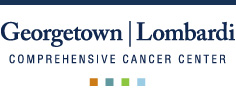Expressive Helping for Stem Cell Transplant Patients
| Status: | Recruiting |
|---|---|
| Conditions: | Blood Cancer |
| Therapuetic Areas: | Oncology |
| Healthy: | No |
| Age Range: | 18 - Any |
| Updated: | 3/13/2019 |
| Start Date: | March 6, 2019 |
| End Date: | June 30, 2022 |
| Contact: | Elli Gourna Paleodis, MS, PhD |
| Email: | Elli.Gourna@HackensackMeridian.org |
| Phone: | 551-996-1244 |
A Randomized Controlled Trial Testing Expressive Helping for Stem Cell Transplant Patients
The Writing for Insight, Strength, and Ease (WISE) Study is a multisite Randomized Controlled
Trial (RCT) testing the efficacy of the Expressive Helping (EH) intervention among adults
receiving hematopoietic stem cell transplantation.
Trial (RCT) testing the efficacy of the Expressive Helping (EH) intervention among adults
receiving hematopoietic stem cell transplantation.
Use of stem cell transplant (mostly for hematologic cancers) is expected to increase 5-fold
by 2030, when the number of survivors will reach 500,000. This highly toxic treatment causes
a range of acute physical and psychological symptoms, which then persist for years for up to
45% of patients. To address gaps in existing symptom-focused behavioral interventions that
can be added to standard patient care, the investigators developed Expressive Helping (EH), a
low-cost, low-burden intervention that targets a range of physical and psychological symptoms
in a broad group of transplant recipients. EH is completed in 4 brief structured writing
sessions during and immediately after transplant, with instructions focused on having
participants write about their transplant experience. Based on promising preliminary data,
the investigators propose to determine whether EH can be used during and immediately after
transplant to reduce common acute physical and psychological symptoms and prevent development
of persistent physical and psychological symptoms. Assessments of physical symptoms and
psychological symptoms will occur at baseline (prior to randomization), "nadir" (Day 7
post-transplant), "engraftment" (Day 14 post-transplant), 1 week post-intervention, 3-months
post-intervention (primary endpoint, early post-transplant), 6-months post-intervention, and
12-months post-intervention (primary endpoint, later post-transplant). The investigators will
also assess a select set of potential mediators and moderators of intervention effects.
Participants will be adult cancer patients scheduled for allogeneic or autologous stem cell
transplant at the study sites. After screening and consent, eligible patients will be
enrolled in a parallel-group, 1:1 randomized controlled trial. Randomization will be
stratified by study site (JTCC and Lombardi Comprehensive Cancer Center, LCCC); sex (linked
with patient outcomes), age (18-59, ≥ 60), and transplant type (autologous, allogeneic).
Staff performing assessments will be blind to study assignment. Participants cannot be
blinded, but hypotheses will not be revealed to them until trial completion. They will be
asked not to reveal their assignment to staff.
by 2030, when the number of survivors will reach 500,000. This highly toxic treatment causes
a range of acute physical and psychological symptoms, which then persist for years for up to
45% of patients. To address gaps in existing symptom-focused behavioral interventions that
can be added to standard patient care, the investigators developed Expressive Helping (EH), a
low-cost, low-burden intervention that targets a range of physical and psychological symptoms
in a broad group of transplant recipients. EH is completed in 4 brief structured writing
sessions during and immediately after transplant, with instructions focused on having
participants write about their transplant experience. Based on promising preliminary data,
the investigators propose to determine whether EH can be used during and immediately after
transplant to reduce common acute physical and psychological symptoms and prevent development
of persistent physical and psychological symptoms. Assessments of physical symptoms and
psychological symptoms will occur at baseline (prior to randomization), "nadir" (Day 7
post-transplant), "engraftment" (Day 14 post-transplant), 1 week post-intervention, 3-months
post-intervention (primary endpoint, early post-transplant), 6-months post-intervention, and
12-months post-intervention (primary endpoint, later post-transplant). The investigators will
also assess a select set of potential mediators and moderators of intervention effects.
Participants will be adult cancer patients scheduled for allogeneic or autologous stem cell
transplant at the study sites. After screening and consent, eligible patients will be
enrolled in a parallel-group, 1:1 randomized controlled trial. Randomization will be
stratified by study site (JTCC and Lombardi Comprehensive Cancer Center, LCCC); sex (linked
with patient outcomes), age (18-59, ≥ 60), and transplant type (autologous, allogeneic).
Staff performing assessments will be blind to study assignment. Participants cannot be
blinded, but hypotheses will not be revealed to them until trial completion. They will be
asked not to reveal their assignment to staff.
Inclusion Criteria:
- Cancer patients
- Age ≥ 18
- English proficient
- Scheduled for allogeneic or autologous transplant at JTCC or LCCC.
Exclusion Criteria:
- Current participation in a behavioral intervention targeting symptoms or quality of
life
- Cognitive or psychiatric impairment precluding ability to complete informed consent or
study procedures
- Literacy limitations precluding completion of a writing study
- Undergoing a tandem transplant where participant is now completing the first of two or
more planned transplants
We found this trial at
2
sites
3970 Reservoir Rd NW E501
Washington, District of Columbia 20007
Washington, District of Columbia 20007
(202) 687-2110

Principal Investigator: Kristi Graves, PhD
Phone: 202-687-1591
Lombardi Comprehensive Cancer Center at Georgetown University Medical Center Georgetown Lombardi Comprehensive Cancer Center, part...
Click here to add this to my saved trials
92 2nd St
Hackensack, New Jersey 07601
Hackensack, New Jersey 07601
(201) 996-5900

Principal Investigator: Christine Rini, PhD
Phone: 551-996-4152
John Theurer Cancer Center at the Hackensack University Medical Center The mission of the John...
Click here to add this to my saved trials